
Sealed borders, severed human ties, closed societies... The COVID pandemic has made North Korea an even more incomprehensible enigma. It is estimated that fewer than 20 people have left North Korea and entered South Korea since 2020. In mid-July 2024, ASIAPRESS met three North Koreans in Seoul who managed to pierce the veil of secrecy. (JEON Sung-jun)
Kang Kyu-lin (female, 23, pseudonym) arrived at the meeting earlier than expected, checking her interview questions and forcing the reporter, who was eating kimbap, to quickly swallow the food he hadn't even chewed. The reporter's first impression of Kang was that of an ordinary Gen MZ girl, but once she started talking, she exuded charisma in near-perfect standard Korean.

"I liked (doing) illegal (things)!" she said.
It's a fitting description for a woman who defected, a capital offense under North Korean law, not alone but at the risk of her family's lives. At 21, she ran a private fishing boat to make money in the East Sea, and she later described the various "illegal" businesses she ran in North Korea. From hiring a "wanted man" tracked by the secret police to engaging in North Korea's version of "unionization" (more on that in a follow-up article),
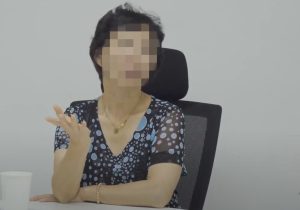
Kang's mother, Kim Myong-ok (female, 54, pseudonym), who believed in her daughter and crossed the line, joined us for the interview.
Kim Chung-yeol (male, 33, pseudonym) has a dwarfish build and piercing eyes reminiscent of General Nok Du. Perhaps it's because he looks like Chun Bong-joon that the reality of North Korea he describes resembles the old Korean world we read about in history books.
* General Nok Du(Jeon Bong-jun) was a revolutionary in the late Joseon Dynasty and the leader of the Donghak Peasant Movement.
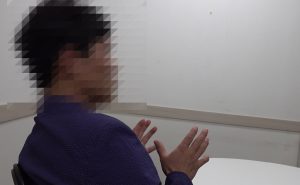
"I thought I could live well in my own country, but during COVID, it became a strange country.... I thought, 'I can't do this.'"
Kim, who operated a fishing boat in the West Sea, escaped last May with nine relatives on board, including his pregnant wife, his mother and his brother's family. It was the first escape by sea by a North Korean since November 2019.
Through these interviews with people who have dramatically escaped North Korea, we hope to lift the veil on the pandemic that has enveloped the country.
◆The "Black Box" of North Korea
Since the pandemic closed its borders in January 2020, North Korea has been a "black box." The four-year information vacuum that has persisted since then is the first of its kind in decades. It has been unprecedented in two ways.
First, the ability to observe North Korea from the inside has been drastically reduced. "Outsiders," including foreign journalists, Western diplomats, and officials of international organizations, were forced to leave Pyongyang.
Second, a humanitarian crisis likely occurred in North Korea during this period, but the world knows very little about it because of the information vacuum. In the past, during the "Arduous March," we were able to learn about North Korea through the testimonies of people who escaped to China, but during this pandemic, the borders were so tightly sealed that no one escaped even to China.
ASIAPRESS has been continuously investigating, analyzing and publishing local information through its reporting partners in North Korea. However, since our reporting partners are mainly based in the northern regions of North Hamgyong, Ryanggang, and North Pyongan provinces, and the information they have access to is limited, it is still difficult to get a holistic picture of the situation in North Korea as a whole.
◆A Ray of Light in the Darkness: Defection as a Gift
In 2023, nine North Koreans arrived in South Korea in May and four in October, traveling through the West Sea and East Sea, respectively. It is extremely rare for people who have experienced the COVID pandemic in North Korea to escape directly and arrive in South Korea.
According to South Korea’s Ministry of Unification, the number of North Koreans arriving in the South dropped from 1047 in 2019 to 229 in 2020, and from 63 and 67 in 21 and 22, respectively, when the COVID virus began to spread around the world. This year, as of June, the number was 105, similar to last year's 196. However, most of the arrivals are people who fled North Korea before the pandemic and were in third countries, and there have been very few cases of people fleeing North Korea directly in the past three to four years.
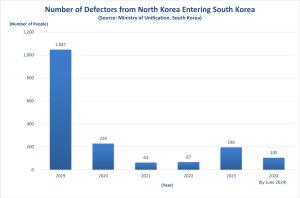
Those who have managed to escape by sea are a gift to anyone who wants a glimpse into the mystery that is North Korea.
◆The MZ 'Donju' Decision
The two families who recently escaped North Korea have something in common. Both were members of the wealthy entrepreneurial class known in North Korean society as "donju," and both had boats as their means of escape. Notably, both families were led by younger members of the MZ generation.
North Korean defections have now become a matter of youth and wealth, in addition to courage and luck.
ASIAPRESS will continue its "Lighting N. Korea's Four Dark Years" series, which will shed light on the current situation in North Korea, including our existing understanding of North Korea during the COVID pandemic and new information learned through interviews. It aims to provide a broad yet specific understanding of the impact of the pandemic on the lives of North Koreans and the policies of the authorities, the tensions and conflicts between the Kim Jong-un regime's survival strategies and the aspirations of the people, and how these things manifest themselves in different regions. (To 2 >>)
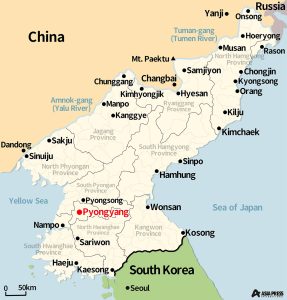
- <Lighting Up N. Korea's Four Dark Years> (10) The Capitalist Ghost Under the Socialist Roof (2) "Leave the Quota to Me" - Are Wealthy Individuals the Driving Force of Rural Economy?
- <Lighting Up N. Korea's Four Dark Years> (9) The Capitalist Ghost Under the Socialist Roof (1): From Private Ship Owners to 'Unions' Negotiating with the Central Party... Ship Owners Pushing Boundaries
- <Lighting Up N. Korea's Four Dark Years> (8) Pandemic-Induced Financial Crisis and the Regime's Response: 'Tax-Free' North Korea Imposes New Levies, Including 'Fireplace Tax'
- <Lighting Up N. Korea's Four Dark Years> (7) North Korea’s Pandemic Power Play: State Seizes Market Control as “Donju” Crumble
- <Lighting Up N. Korea's Four Dark Years> (6) Humanitarian Crisis is a Man-Made Disaster: Intensifying Chaos and Disorder... North Korean Version of 'War on Crime' as Told by COVID Survivors
- <Lighting Up N. Korea's Four Dark Years> (5) What Happened During COVID... "Drink Willow Branch Brew" - Misguided Quarantine Policies Only Led to Residents' Deaths
- <Lighting Up N. Korea's Dark Four Years> (4) “The People Are at the End of Their Tether”: A Country that Wants to Control Markets and Rule by Calories
- <Lighting Up N. Korea's Dark Four Years> (3) The Second Link in the Tragedy – Ruthless Quarantine Policy, "The State is Scarier than the Virus"
- <Lighting Up N. Korea's Four Dark Years> (2) The First Link in a Tragic Chain - Border Closure... "Corona Was a Nightmare, It Was Difficult to Buy Even a Single Needle"
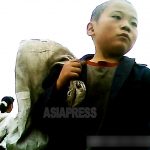
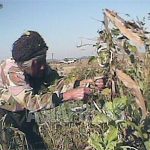
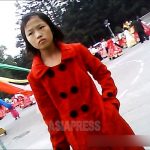
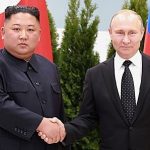
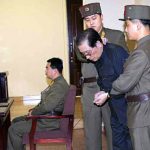
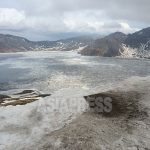






![[Photo Breaking News] Multiple Russian Vehicles at N.Korea-Russia Border, Including Unidentified Cargo (6 photos) [Photo Breaking News] Multiple Russian Vehicles at N.Korea-Russia Border, Including Unidentified Cargo (6 photos)](https://www.asiapress.org/rimjin-gang/wp-content/uploads/2024/10/01-2024-10-22-16.31.49_776ccf74-90x65.jpg)











